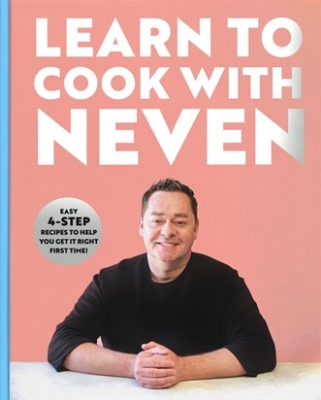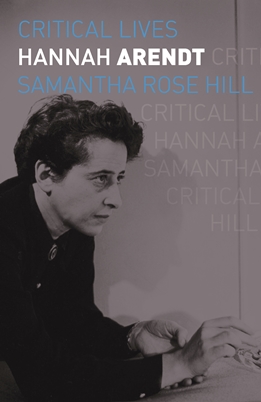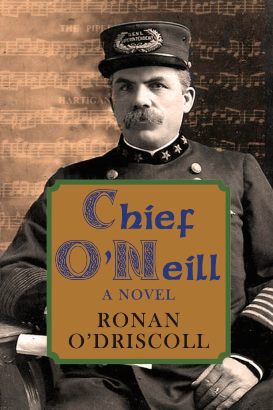Recommended Festive Reading
This Christmas, whatever age you are, you can join famous chef Neven Maguire in the kitchen. Once again the great man has come to the rescue of those of us who don’t want to do anything more adventurous than peeling the spuds. In his latest book Learn to Cook with Neven, he takes us by the hand and leads us through an incredible eighty recipes. Two hundred and thirty-one pages of advice from a man who started cooking aged twelve with his mother in Blacklion. He doesn’t brow-beat the reader. Neither does he keep his hard-won knowledge to himself. The book is littered with such phrases as “ . . . the one that I always use is . . . “ Or in a recipe from his memory,” . . . long before I had heard of mozzerrale.”
In 1992, having studied catering in Fermanagh College,
Enniskillen, he won the prestigious Student of the Year Award. Still in
his 20s, he was named Eurotoques ‘Young Chef of the Year 1999’, won
numerous ‘Chef of the Year Awards’, and represented Ireland in the
‘Bocuse d’Or World Cuisine Competition’ in Lyon, France. Later that same
year, he was presented with a special Gold Medal Award by Charles,
Prince of Wales, in London’s House of Commons for high achievement in
his career. He has been winning awards ever since and was most recently
inducted into the prestigious Food & Wine Magazine Awards 2015 ‘Hall
of Fame’ for his years of commitment and dedication to the Irish food
industry. Neven has been responsible for raising awareness around
Ireland’s high-quality food producers, both nationally and
internationally. He was presented with Ireland’s ‘Producer Champion
Award’ at the Blas na hEireann national food awards. And now he shares
his secrets between the covers of this beautiful hardback book. It is
published by Gill Books. www.gillbooks.ie

|
|
* * * * *
Hannah Arendt, born on 14th October 1906, in Linden, a district
of Hanover, and died on 4th December 1975, was a Holocaust survivor,
political philosopher, and author. Recognised as one of the great
thinkers of the twentieth century, her contributions influence
political theorists to this day.

|
|
Her family were Jewish and when she was three, her family moved
to Königsberg, the capital of East Prussia, The fact that she was
raised in a politically progressive, family paved the way for the rest
of her life. After completing her secondary education in Berlin, she
studied at the University of Marburg under Martin Heidegger. She
obtained her doctorate in philosophy writing on Love and Saint Augustine
at the University of Heidelberg in 1929 under the direction of the
existentialist philosopher Karl Jaspers. Her works are best known for
those dealing with the nature of power and evil, as well as politics,
direct democracy, authority, and totalitarianism. Author Rose Hill has
fitted much lesser-known details of the great thinker into the 232 pages
of her book, Hannah Arendt.

|
|
It is a very informative piece of work. Details at; www.reaktionbooks.co.uk
* * * * *
“This blog has been only a side-line to my main project:
writing a novel of the main events in the life of Francis O’Neill. This
has been a major undertaking for the last number of years, involving
travel for research and lots of writing and rewriting.” The words of author Ronan O Driscoll on his labour of love researching and writing his novel Chief O’ Neill.
“I started by wanting to tell the story of the man behind
the famous music collections: the adventures and struggles he
experienced in a full and fascinating life. Along the way, I have
learned many things myself, especially about how difficult and rewarding
writing a book can be.”
Francis O’Neill, who was born in Tralibane (also called
Trawlebane), near Bantry, County Cork, is still remembered for his
canonical 1001 Gems: The Dance Music of Ireland. Much of the music was
collected after he settled in Chicago as a policeman, eventually
becoming chief of police. He wrote about how he would walk about as a
cop, hearing a snippet of a tune from one of the many immigrants in the
city and scramble to write it down. As he grew in rank, he wasn’t above
giving the occasional Irish musician a job on the force to help them.
Has his story ever been told in such a colourful manner?
Chief O’Neill is available from a number of fine book shops
in Ireland, as well as online from Somerville Press. It is available in
the UK from Waterstones and Amazon.co.uk.

|
|
In North America, it is available from Amazon.ca and Amazon.com.
Any one or all three of the above will make a wonderful Christmas present for family and friends.
* * * * *
Do we need new words?
We are now given a list of words that were added to the
popular lexicon in 2021. It happens at the close of each departing year.
Many readers will remember when Watergate was introduced to the English
language worldwide in 1972. We had a few “gates” here in recent years.
We had Golfgate last year. The EU lost Big Phil because of that. Come to
think of it didn’t we have our own Watergate here when he was a
Minister; when the water meter was a secret weapon.
And Swinggate. Former Fine Gael TD Maria Bailey, an
alleged responsible adult, was messing on a swing, suffered some sort of
injury took a personal injuries case against the Dean Hotel on Harcourt
Street which she later withdrew. She later said that the “swing-gate”
“destroyed” her and that she became fearful of doing her weekly shop
or bringing her children to the playground.
Speaking of swingers, in Bantry Garda station we had Gate
Gate. They lost a gate. How do you lose a gate? I wonder what Lady
Bracknell would make of that. Of course “Merrion Gate Gate” is still
alive and well. Achone, achone , Zapone, Zapone. And recently I heard
Trinity Graduate Joe Duffy talking about Trinity Gate Gate. I nearly
forgot. Ten years after Watergate we had GUBU here. “Grotesque,
Unbelievable bizarre and unprecedented.”
GUBU was a badly needed acronym. We have needed it every week, and sometimes every day, for the past thirty-nine years.
But why am I writing about words that were added to our
language. That is not what I intended to do. Before you accuse me of
using a misleading title to this piece, let me explain. I sat down
here to write about words that, in my lifetime, have become obsolete or
almost so. Take the word “asunder”. People don’t pull anything asunder
anymore. They dismantle it or pull it apart. Or those who want to live
in the past and the present might “sunder” it.
And the word arris. It’s a noun spelled A-r-r-i-s. Nowadays
even some people in the construction industry don’t know what it means.
(Yes, erudite reader I know that you know.) It is, “ A sharp edge
at the meeting of two surfaces at an angle with one another.” That is an
arris. Many years ago my father was in the hospital and he wasn’t
impressed by the lack of a keen edge on the razor used to shave him. He
later commented, “I might as well have been shaved with the arris of a
brick.”
Then there are words that are almost gone. How often do you
hear the word “fortnight” used recently? You’ll hear “I’m going to the
Bahamas for two weeks” or “The son will be out of jail in two weeks.”
But “fortnight” is almost gone. The word “twice” (like Exits) appears
to be on the way out. In the best-regulated media circles, you will
hear “Two times”
The door between our hall and kitchen, when subjected to a
not so gentle breeze tends to slam shut. We have young grandchildren and
the wind-assisted closing of this door could result in serious damage
to junior digits. I went to Woodies to buy a hasp. Since I have an
aversion to shopping I took my usual action to accelerate the exercise. I
asked a very pleasant member of staff where I would find a hasp. When I
described it to him he apologized and informed me that they didn’t
stock such an item. A quick perusal of the aisles and I spotted a
number of brass hasps. I grabbed one and as I headed for the Checkout I
showed it to the young man that I had spoken to earlier. “Oh,” he said “that’s a cabin hook.”
Imagine, if you can, me walking into Hennessy’s hardware in
Blessington in the middle of the last century and asking for a cabin
hook. A CABIN HOOK!
Back to the title “Our is dying by the hour.” You will find
that most married or co-habiting people will say things like “ our
house, our dog our mortgage” and such like. Yet, it appears that
there is a growing minority of partners in such relationships who drop
the adjective “our” completely. I know one married couple and with
one of the partners everything “my this and my that.” I only heard
this person use the word “our” once. The occasion was a reference to
“our DVD player.” Don’t ask me why.
It seems the couple was in bed one night and there was noise
downstairs. The person to whom I have been referring nudged their
partner with the instruction, “Go downstairs. I think we have a burglar.” Only to be told, “Go down yourself. Seemingly there’s nothing belonging to me down there.”
* * * * *
I’m sharing an audio clip with you. It’s my memory of Christmas Morning sixty nine years ago.
Christmas Morning nineteen fifty two. Wav.wav
See you next year.





No comments:
Post a Comment